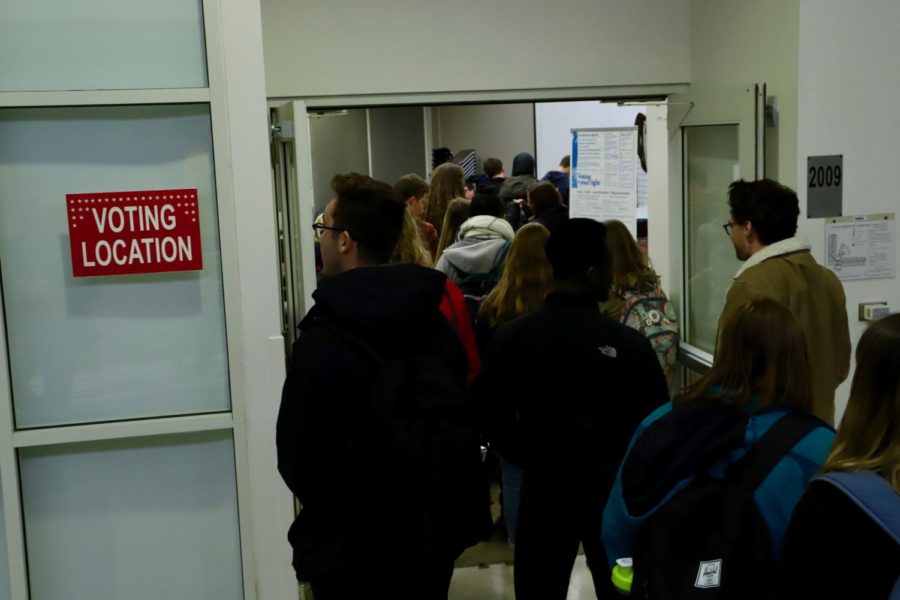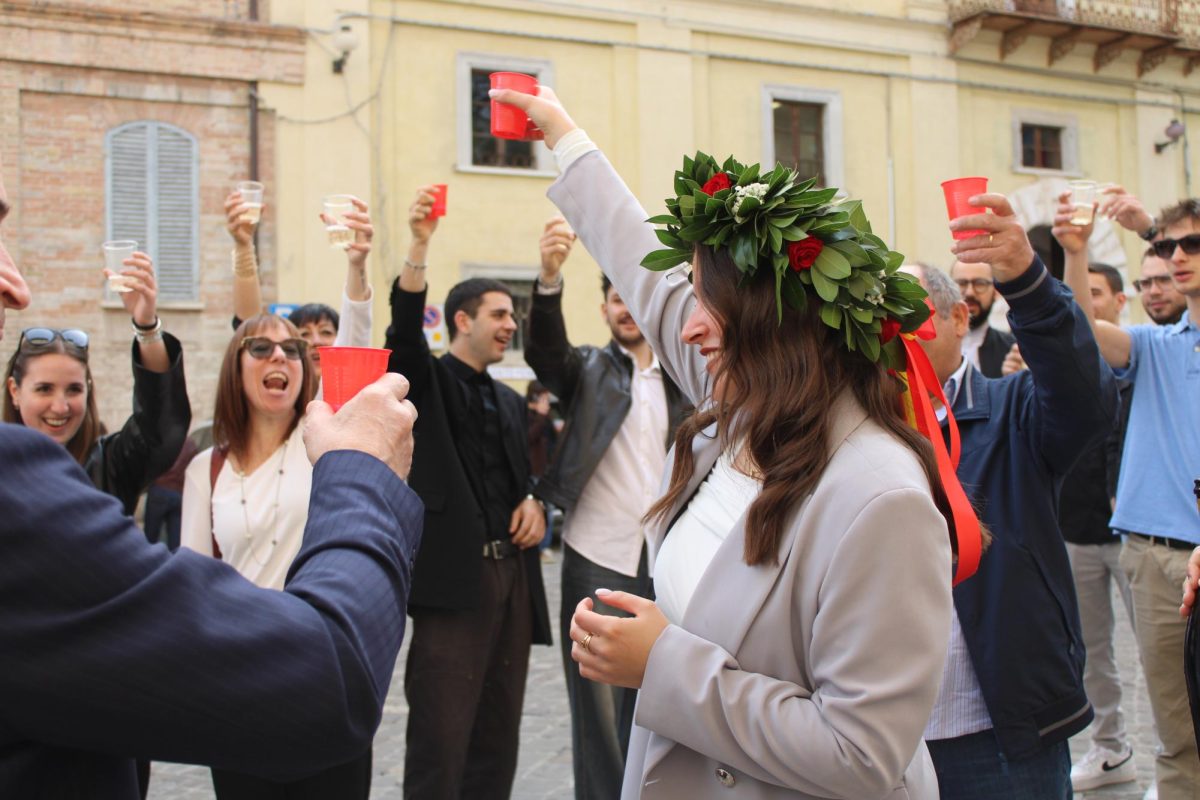Stick out the wait: Election results will come
November 2, 2020
Take a deep breath, there will be results for the presidential election. It is just a question of when they will be announced, and this is nothing new.
Looking at past elections, results have never been finalized on Election Day. The certification of electoral votes follows days after. In the 2016 election, the Associated Press declared President Donald Trump the elected president at 2:29 a.m. ET, the day after the election.
This year’s delay comes at the cost of surges in absentee voting rather than voting in person Nov. 3, and generally, those mail ballots take longer to count. Before scanning these ballots, mail-ins require election workers to remove ballots from envelopes, check for errors and sort them after polls close, according to the Associated Press.
Zack Bonner, lecturer in the political science department, said this impediment does not mean these results will be less accurate.
“Many of these states don’t allow those ballots to even start being counted until Election Day starts, even though they may have received them weeks ago they can’t count them tomorrow,” Bonner said. “If you are trying to count 5 million ballots in one single night it is impossible.”
In the 2000 election, Republican George Bush ran against Democrat Al Gore after President Bill Clinton served two terms. Over 61,000 ballots had been missed by the vote tabulation machines. The Florida Supreme Court ordered a recount followed by the Bush campaign immediately requesting the U.S. Supreme Court to rule on the dispute.
The Supreme Court’s final decision allowed for the vote certification made by Florida’s secretary of state to stand. Bush took Florida by slim margins of 537 votes, putting him at 271 electoral votes and obtaining the minimum required electoral votes of 270.
“The Bush v. Gore is generally regarded, even by Republicans and Conservatives who study the court, as a notoriously terrible decision,” said Dirk Deam, teaching professor in the political science department. “It is almost indefensible and you don’t have to be a Democrat to take that position. It has done grievous damage to the respect of the Supreme Court, they looked like a bunch of party hacks who were delivering the election to a party.”
Deam said it is uncommon for the Supreme Court to have involvement in elections and decisions like this taints the image of the court.
“That was a wide-scale project of voter suppression and it worked,” Deam said.
Voter suppression continues to be a prominent issue in this election as lower courts attempt to resolve these disputes. A day before the election, a Texas judge dismissed a suit challenging the legality of 127,000 ballots cast in drive-thru voting.
States have varying rules about when they can begin processing and counting absentee ballots. Iowa, Texas and Florida allow counting to begin before Election Day while Pennsylvania and Georgia begin counting on Election Day. There are 17 states with statutes restricting ballot counting until after polls close on Election Day, according to Ballotpedia.
Because of the lack of information during election night, news organizations may not be able to make accurate projections.
But Americans are accustomed to waking up to election results, meaning this delay can create some uncertainty if it is a close election. This was seen in the 2000 election when the Florida Supreme Court ordered a statewide recount of all undervotes, ballots that are not counted due to unclear marking.
This election, the source of uncertainty is not a matter of hanging chads. Instead, it is a part of a premeditated campaign strategy.
Throughout the election season, President Donald Trump has worked to discredit the results even before they have been released. During a rally in Nevada in September, Trump said the only way he would lose the election is if it is rigged.
Bonner said since mail-ins typically are counted later, election night projections may skew red because Republicans tend to vote in person at higher rates than Democrats. Trump has tweeted the election should end on the night of Nov. 3 and not weeks after.
“I think once all the mail and absentee ballots are counted it will swing back very far the other way, and that is kind of where he (Trump) is trying to sew the doubt,” Bonner said. “Saying ‘well it is Republican looking victory on election night, therefore, something shady has happened later on’ even though it is a completely normal process.”
Concerns of voter fraud are often linked to mail-in voting but according to a reporter from Brennan Center for Justice, it is more likely an American will be struck by lightning than impersonate another voter at the polls.
This argument falls in line with Republican efforts to restrict voting, Deam said.
“People first have to understand the two parties are not symmetrical,” Deam said. “It is the Republican Party and almost exclusively the Republican Party that works hard to keep people from getting their votes counted or to keep them from voting in the first place. That has been a conscious strategy of the Republican probably since the 2000 election.”
Aspects of 2000 linger in this election but the two are not complete parallels. Concerns of contentment have arisen as a result of Trump’s rhetoric.
“We’re going to go in the night of, as soon as that election’s over, we’re going in with our lawyers,” he said during a rally in North Carolina on Sunday, according to The New York Times.
Bonner said based on the implications made by Trump and if swing state results are close, there may be some dispute but he does not think the decision should come down to the Supreme Court.
Deam said the courts are supposed to answer questions of constitutional law in a way that respects the integrity of the court as a neutral arbiter.
“People sometimes talk about elections being the crazy time, long before this, people kind of lose it in the context of presidential elections especially because the stakes are so high,” Deam said. “And anyone who wants to get in on that mess is asking for trouble and the court knows that and so in some respects they would normally be inclined to stay out.”

















